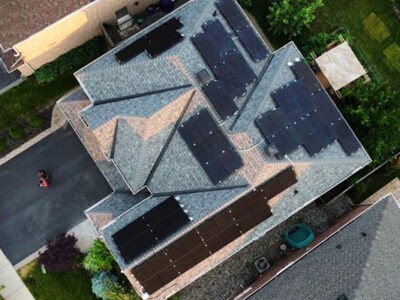Trump has imposed tariffs of 30 percent on imported solar cells and modules in what is being described as a move to protect U.S. industry while signaling a more aggressive stance towards China.
The move could be considered by some as a “major blow” to the $28 billion solar industry, which imports around 80 percent of its solar panel products.
We remember last year, two struggling U.S. solar panel manufacturers (Suniva and SolarWorld) lobbied for protection from an influx of cheap Chinese photovoltaics.
While they got their way, the fact remains that China does out-compete the U.S., and drove down the price of panels to bring solar costs in line with fossil fuels. But this tariff decision seems like a good old protectionism scheme.
The Solar Energy Industries Association said the tariffs would increase prices and lead to the loss of 23,000 jobs.
“While tariffs, in this case, will not create adequate cell or module manufacturing to meet U.S. demand or keep foreign-owned Suniva and SolarWorld afloat, they will create a crisis in a part of our economy that has been thriving, which will ultimately cost tens of thousands of hard-working, blue-collar Americans their jobs,” Abigail Ross Hopper, the group’s president, said in a statement.
Bloomberg notes that the tariffs only apply to silicon solar technology and also exempts the first 2.5 gigawatts of imports, which adds that the tariff rate is to fall to 15 percent over four years.
Because solar modules only make up a fraction of the total cost of solar systems, the move will only add around 10 percent to utility-scale schemes, adds Bloomberg, under a headline calling the decision: “The biggest blow to renewables yet.”
This new tariff could bolster manufacturers while harming installers.
The tariffs are the first signed off directly by Trump since becoming president.
“The president’s action makes clear again that the Trump administration will always defend American workers, farmers, ranchers, and businesses,” said Robert Lighthizer, the U.S. trade representative.













Comments